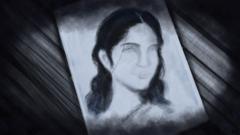In the 1920s, at a time when women in cinema faced intense societal disapproval, PK Rosy emerged as a trailblazer in Malayalam cinema, becoming the first female lead in the film "Vigathakumaran" (The Lost Child). However, instead of being celebrated as a pioneer, her story was buried under the weight of caste discrimination and social backlash, as she hailed from the Pulaya community, one of the lower castes in Kerala.
Rosy, originally named Rajamma, was born in the early 1900s in Travancore, now part of Kerala. Her family's background as grass cutters marked them as Dalits, subjected to severe social oppression. Professor Malavika Binny from Kannur University emphasized the historical abuses faced by the Pulaya community, drawing attention to their brutal treatment. Nevertheless, Rosy defied societal norms and pursued a career in entertainment, supported by her theatre artist uncle.
Her exceptional acting talent brought her local acclaim, eventually catching the eye of director JC Daniel, who cast her in the leading role of Sarojini in his film. Despite earning a good wage for the time, the film's premiere became a disaster; Rosy and her family were prohibited from attending, leading to a public outcry over her portrayal of an upper-caste woman. Viewer outrage culminated in protests that damaged the theatre and ultimately forced Rosy into seclusion.
The aftermath of the film's release left Daniel in financial ruin; he never produced another film, while Rosy fled her hometown following threats to her safety. She severed ties with her past and reinvented herself in Nagercoil, Tamil Nadu, marrying an upper-caste man and adopting the name Rajammal. The strain of caste identity extended to her family, as her children distanced themselves from her Dalit heritage.
Despite being rediscovered in recent years, PK Rosy's legacy remains complicated. Activists and filmmakers are striving to honor her memory, exemplified by Tamil director Pa Ranjith's annual film festival in her name. Yet, Rosy's story serves as a mirror reflecting the societal costs of surviving in a caste-ridden environment. As her nephew Biju Govindan poignantly noted, the real tragedy lies not in Rosy’s choices, but in the oppressive norms of the society that shaped her life.




















